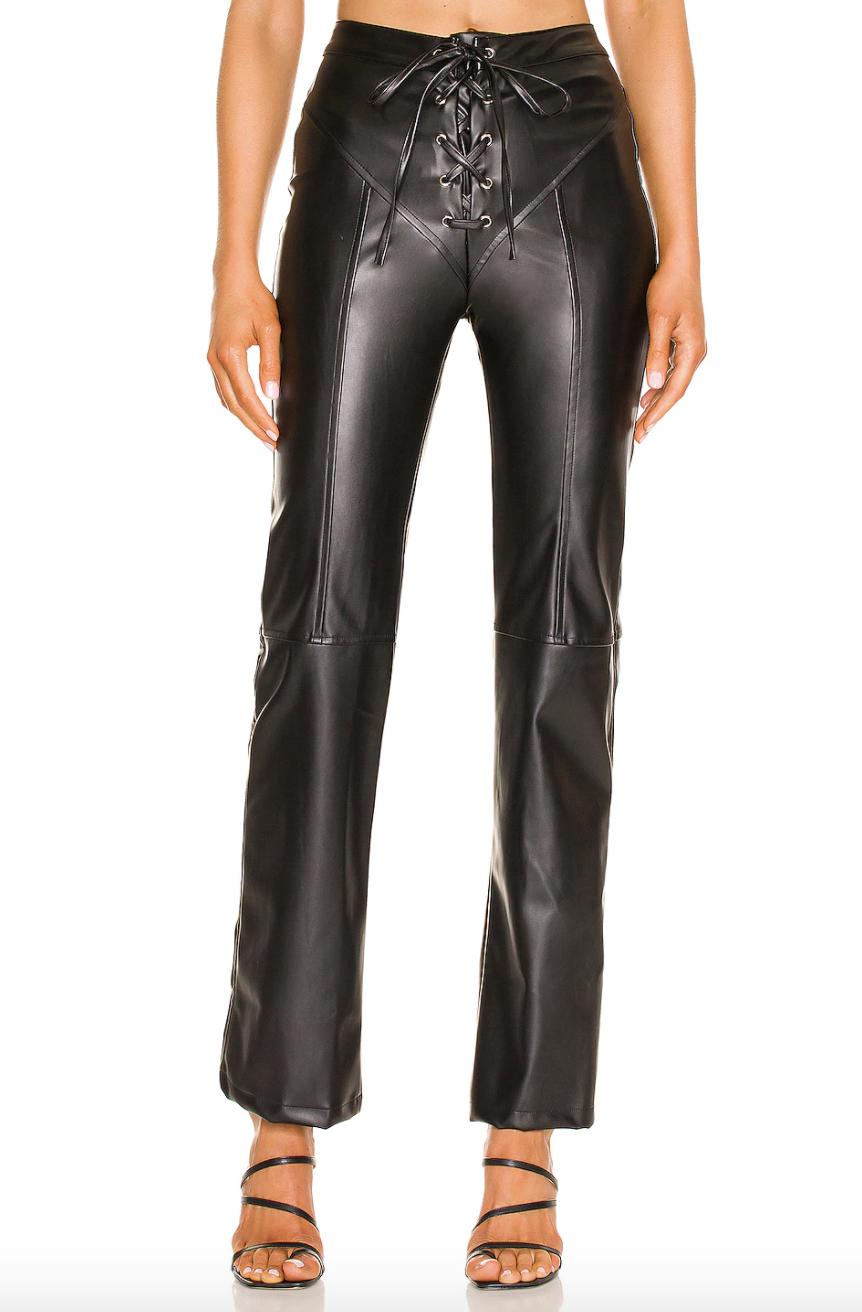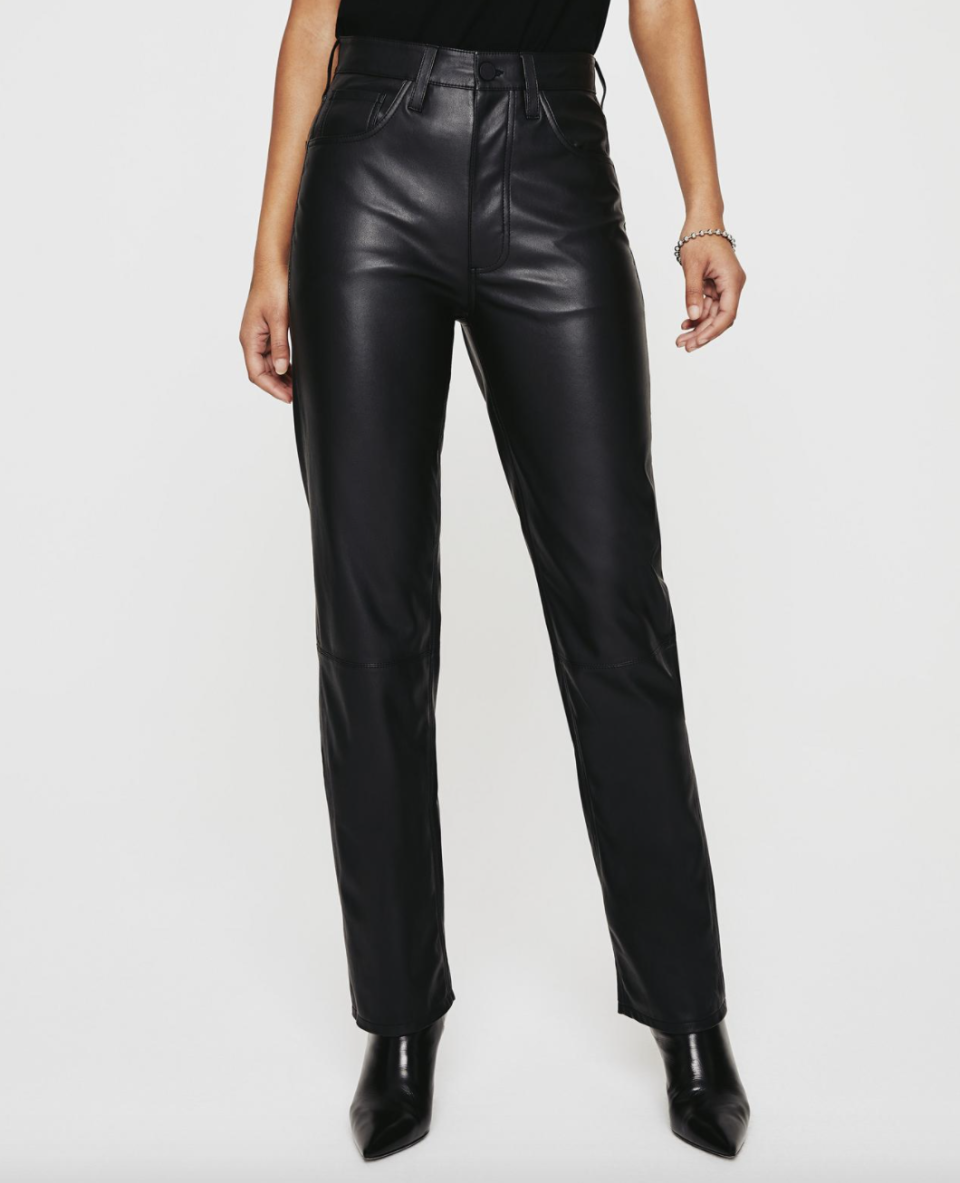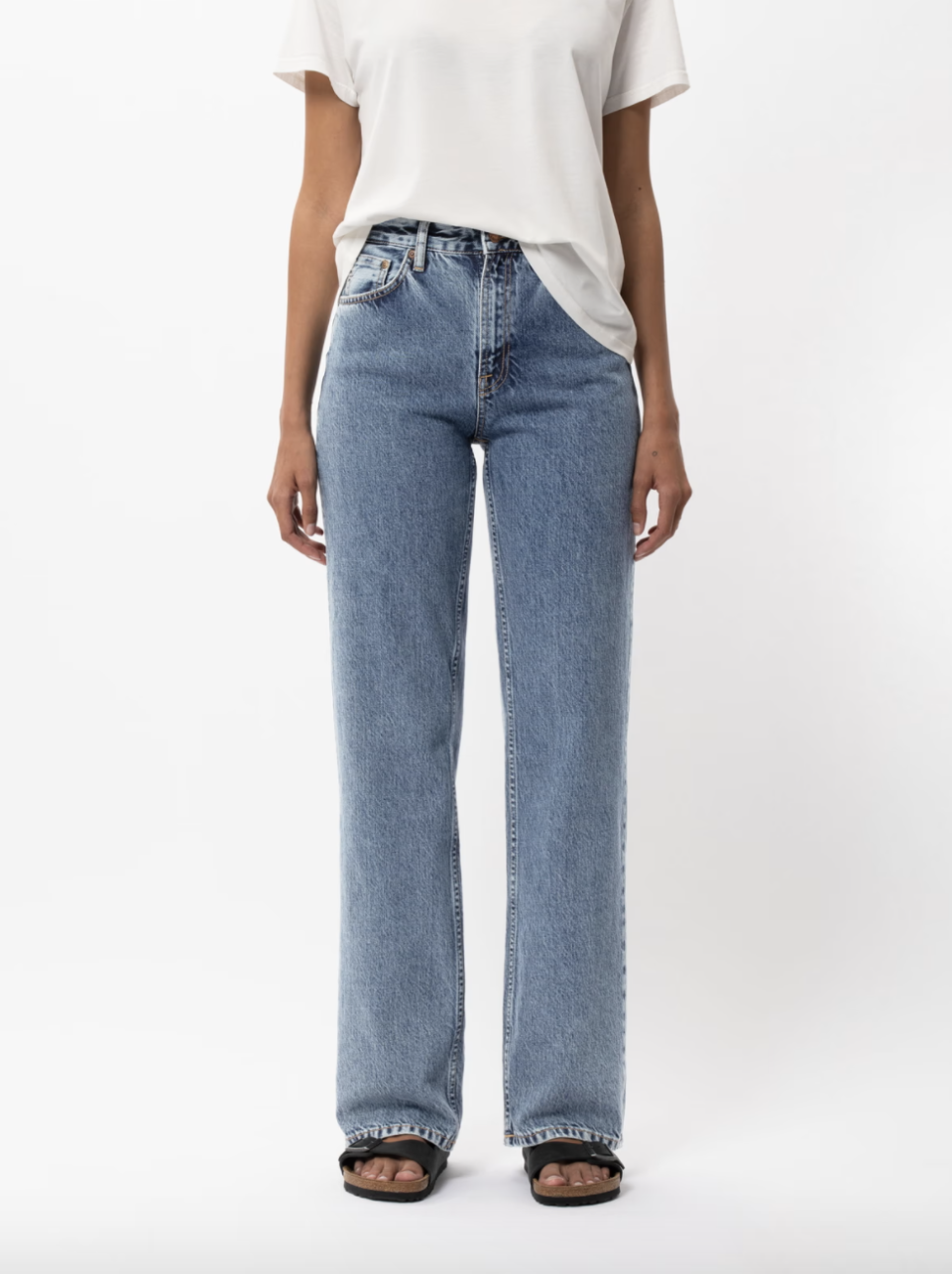How Denim Brands Are Going Vegan

If you purchase an independently reviewed product or service through a link on our website, STYLECASTER may receive an affiliate commission.
Driven by demand and an industry-wide call for more ethical manufacturing, fashion brands are moving veganism out of the kitchen and into the closets of conscious consumers with animal-free apparel and accessories.
More from StyleCaster
Sorry, These 2022 Denim Trends Say Skinnies Won't Be Making A Comeback
Joe Burrow Fashion: The Most Stylish Ohioan Alive Is Headed to The Super Bowl
Though momentum for vegan fashion has been mounting since 2018—a year that saw Helsinki Fashion Week ban leather, and luxury giants like Gucci, Chanel and Versace eliminate the use of real fur in their collections—the category has recently exploded partly in response to Covid-19, which has led to the growing concern about infectious diseases that originate from animals. The pandemic, coupled with the overall shift toward healthier plant-based lifestyles, are motivating brands and consumers alike to reconsider their fabric choices.
AG Jeans recently bowed a men’s and women’s capsule collection of “buttery smooth and supple” vegan leather pants, shorts and shackets, which the brand says, “rivals the softest lamb leather.” Each piece is hand finished in a renowned leather factory, employing the same traditional seam sealing techniques as applied to real leather garments, and taking care to mimic real seam placements for an authentic look and feel. The collection is finished with soft-touch matte rubberized hardware from recycled materials.
Click here to read the full article.
Meanwhile, sustainable denim label EB Denim emphasized vegan leather lace-up trousers and vests in its email marketing for New Year’s Eve party looks.

Vegan Leather Lace Up Pants $400
Initiatives put in place by organizations like Veganuary are mainstreaming vegan lifestyles as well. Throughout the year, the U.K.-based non-profit organization supports people and businesses to shift to plant-based products as a way of protecting the environment, preventing animal suffering and improving the health of people. Each January, Veganuary aims to inspire new habits for a new year by urging people to sign up for a month-long challenge to “go vegan.”
More than 580,000 people took the pledge during the 2021 campaign, adding to the more than one million people who have already completed it since 2014. Veganuary reports that one million people going vegan for 31 days has resulted in the lives of 3.4 million animals spared, 1.6 million gallons on water saved and more than 103,000 metric ton of CO2EQ saved from contributing to the planet’s global warming crisis.
Veganism is proving to go beyond consumers’ dietary choices. In its 2020 Conscious Fashion Report, fashion search platform Lyst reported that searches for “vegan leather” increased 69 percent year-on-year, averaging 33,100 online monthly searches, and searches for “faux leather” remained constant. Meanwhile, searches for “leather” decreased 3.5 percent year-on-year. Likewise, searches for “fur” declined 8 percent year-on-year.
Stylish vegan fashion is certainly more available. Retail market intelligence platform Edited reported that by the end of January 2021, there was a 75 percent year-over-year increase in products described as “vegan” stocked in the U.S. and U.K. versus 2018. Accessories and footwear make up the majority of these products as influential labels like Adidas, Allbirds and Stella McCartney continue to innovate in this space with plant leather, upcycled marine plastic waste and 3D-printed materials.
Though the denim industry has been proactive in developing alternatives for water-intensive crops and chemical-powered washing processes, as it continues its sustainable journey, every component that makes up a pair of jeans—down to the three-inch by two-inch leather back patch—is being scrutinized.

Alexxis Vegan Leather Pants $328
The Higg Materials Sustainability Index, a cradle-to-gate material scoring tool from the Sustainable Apparel Coalition rates cow leather No. 1 among materials with the greatest upstream burdens. Not to mention, the material is tied to fashion’s history of animal cruelty, despite leather being a byproduct of the food industry.
In 2019, People for the Ethical Treatment for Animals (PETA) took aim at Levi’s, demanding the denim giant to ditch animal-derived leather for more ethical alternatives that are also less harmful to people, animals and the environment. Though some of the brand’s patches are made from Forest Stewardship Council (FSC)-certified Jacron paper, PETA snapped up the minimum number of shares of the then-newly publicly traded company required to submit shareholder resolutions and secure speaking rights at annual meetings.
Levi’s responded at the time by pointing out that “a small fraction” of the raw materials it uses is leather. “Nevertheless, Levi Strauss & Co. strives to source all materials responsibly,” a Levi’s spokesperson said. “Our goal is to ensure that wherever materials derived from animals are used in our products, their health and welfare are protected, in line with international animal welfare standards.”
The animal-rights group rekindled the argument in 2020 by gathering over 125,000 signatures for a petition that called on Levi’s to opt for vegan leather—this time targeting the brand’s efforts to fight climate change by claiming animal leather has at least three times the negative environmental impact as most vegan leather.
“It’s now also widely recognized that animal agriculture—including the industries producing its co-products, such as leather—is a leading contributor to climate change,” PETA stated.
Alternative Options
If the ethical and sustainable benefits of veganism have not swayed a denim brand to rethink their back patch, the sizable impact it has on sales may. The global vegan fashion market is forecasted to reach $1.1 billion by 2027, Edited reported, and that’s for women’s wear alone.
Denim brands in tune with the values close to millennials and Gen Z are taking note. Dutch denim label Kings of Indigo is a PETA-approved vegan brand. The organization also lauds American Eagle, Boyish, Closed, Mother, Uniqlo and others for using non-leather patches or skipping the branding element all together.
As of Fall 2018, Nudie Jeans has used paper-based patches on newly produced jeans. Though the brand is not fully vegan—it uses other animal-based fibers in contexts where it believes the fiber is fulfilling a certain function—it did not see the necessity of using leather as a decorative detail. The Jacron patches Nudie uses are made from recycled paper that includes a small amount of acrylic polymer, which the company noted is the least sustainable element of the new patches but necessary to give the patch the strength needed for the jeans’ entire lifespan.

Clean Eileen Gentle Fade Jeans $200
Cruelty-free and eco-friendly do not always go hand in hand. As Edited pointed out, “there is still the question of scaling sustainable alternatives to vegan products.”
While Jacron, known for its leather-like appearance and durability, is a common leather substitute, other vegan alternatives are often made from synthetic materials such as petroleum-based polyurethane (PU) or polyvinyl chloride (PVC), which Greenpeace described as the “single most environmentally damaging type of plastic.”
“Both pose serious environmental threats given that they are usually manufactured from fossil fuels and are not biodegradable,” said Elif Haslaman, general manager of DeriDesen Etiket, a Turkish trims manufacturer, noting that “vegan does not necessarily mean natural.”
Trims suppliers, however, are in the pursuit of responsible vegan alternatives. Pineapple leather, apple skin, cork, organic fabrics and stone paper—a paper made from limestone versus trees—are among DeriDesen Etiket’s vegan-friendly options. Several alternatives also tout industry-recognized certifications like Global Recycle Standard (GRS), Oeko-Tex, FSC and Global Organic Textile Standard (GOTS).
“Vegan trims are important to our clients,” said Gloria Crivellaro, Ribbontex export sales manager. “They know exactly what they want and what they don’t want, and this is extremely important and positive.”

Along with vegan leather, the Italian trims manufacturer offers a range of solutions produced with hemp, organic cotton, recycled plastic bottles and biodegradable materials. These alternatives, she added, are often better than traditional leathers.
Vegan jeans are also a side effect of denim’s sustainable makeover, particularly new collections that align with Ellen MacArthur’s Jean Redesign project, an industry-wide effort to put circular jeans in the market. While the guidelines do not single out leather, they do require easy disassembly of trims for recycling, which some participants like Blue of a Kind and H&M are responding to by keeping their circular jeans patch-free. Others, such as Tommy Jeans, laser-print pieces of sustainable denim to use for patches in their Jean Redesign collections.
Indeed, sustainable material alternatives are increasing by the season. Since 2020, Haslaman said 80 percent of DeriDesen’s production is produced from certificated sustainable materials. The company’s target for 2021 is 95 percent. “Alternative sources for new materials are increasingly being sought and new manufacturing methods developed,” she said. “They are an important addition to improving the choice of sustainable materials.”
And the pandemic only reinforced the denim sector’s commitment to sustainability. Crivellaro described 2020 as a “watershed year” with one major positive: it provided the wake-up call for “a more sustainable, ethical and ecological” approach to designing and manufacturing down to the smallest details.
“I have been working in this industry for more than 15 years,” Crivellaro said. “I find the combination of denim and vegan surprisingly stimulating, so I really hope this will be key to getting off to a great restart.”
Best of StyleCaster


